Gastwissenschaftler*innen und Fellows
Das LSI empfängt Nachwuchswissenschaftler:innen und etablierte Forschende aus dem In- und Ausland zu Gastaufenthalten in Berlin. Interessenbekundungen, die sich an den aktuellen Forschungsaktivitäten und -projekten des LSI orientieren, sind jederzeit möglich, sollten aber in der Regel mindestens sechs Monate vor dem geplanten Aufenthalt eingehen.
Bitte schicken Sie Ihre Anfrage mit aussagekräftigen Unterlagen (Motivationsschreiben, Lebenslauf und Kurzexposé der Forschungsarbeit, insgesamt max. fünf Seiten) an lsi@rewi.hu-berlin.de.
Eine Assoziierung erfolgt im Normalfall für eine Dauer von bis zu maximal sechs Monaten. Die Unterstützung von Gastwissenschaftler:innen durch das LSI umfasst die Bereitstellung eines HU-Bibliothekszugangs, den Kontakt zu Senior Researchers des LSI sowie die Möglichkeit zur Teilnahme an allen LSI-Veranstaltungen. Erwartet wird darüber hinaus eine Vorstellung eines eigenen Forschungsthemas im Rahmen eines Abendvortrags, Werkstattgesprächs oder einem ähnlichen Format. Das LSI kann Gastaufenthalte in Ausnahmefällen finanziell unterstützen. Finanzierungsmöglichkeiten können im Falle einer erfolgreichen Bewerbung individuell abgestimmt werden.
Zur Förderung des Wissenstransfers zwischen Theorie und Praxis haben Praktiker:innen (beispielsweise aus dem Feld der Entwicklungszusammenarbeit, der Verwaltung oder den Medien) die Möglichkeit, ihre Erfahrungen im Rahmen eines Gastaufenthalts am LSI wissenschaftlich aufzuarbeiten. Für Bewerbungen auf ein solches Practitioner Fellowship gelten die oben genannten Konditionen.
Aktuelle Gastwissenschaftler*innen

Samira Akbarian studierte Politik, Soziologie und Rechtswissenschaft in Bonn und Köln, wo sie auch ihre beiden juristischen Staatsexamina absolvierte. 2022 promovierte sie an der Goethe-Universität Frankfurt mit einer Arbeit über "Ziviler Ungehorsam als Verfassungsinterpretation" (ausgezeichnet u.a. mit dem Deutschen Studienpreis Kultur- und Geisteswissenschaften 2023). Eine Zusammenfassung ihrer Thesen veröffentlichte sie 2024 unter dem Titel "Recht brechen. Eine Theorie des Zivilen Ungehorsams" bei C.H Beck. Derzeit ist Samira Akbarian als Postdoktorandin am Fachbereich Rechtswissenschaft der Goethe-Universität Frankfurt tätig.
Christoph Schuch ist wissenschaftlicher Mitarbeiter am Lehrstuhl für Bürgerliches Recht und Neuere Rechtsgeschichte an der Europa-Universität Viadrina Frankfurt (Oder). 2022 bis 2025 war er wissenschaftlicher Mitarbeiter im Forschungsprojekt „AS Just – Antisemitismus als justizielle Herausforderung“ an der Humboldt-Universität zu Berlin. Seine Forschungsschwerpunkte liegen im Bereich des Verfassungsrechts, der Juristischen Zeitgeschichte sowie der interdisziplinären Antisemitismusforschung. Zurzeit beschäftigt er sich mit dem Umgang mit Antisemitismus zwischen Politik und Recht.
Permanent Fellows
Permanent Fellows sind mit dem Institut langfristig verbundene Wissenschaftler*innen. Sie begleiten die Arbeit des Instituts kontinuierlich und prägen dessen inhaltliche Entwicklung.
Dr. Christian Boulanger ist wissenschaftlicher Mitarbeiter am Max-Planck-Institut für Rechtsgeschichte und Rechtstheorie in Frankfurt am Main. Seine Forschungsschwerpunkte liegen im Bereich Rechtssoziologie und Verfassungsrecht.

Dr. Valentin Feneberg ist wissenschaftlicher Mitarbeiter am Lehrstuhl für Public Policy und Recht am Institut für Politikwissenschaft der Leuphana. Zuvor war er wissenschaftlicher Mitarbeiter am DeZIM sowie Forschungskoordinator und wissenschaftlicher Mitarbeiter am Law & Society Institute der Humboldt-Universität zu Berlin. Seine Arbeitsschwerpunkte sind die Rechts- und Gerichtsforschung sowie die Migrationsforschung. Im Trinity Term 2024 war er Gastwissenschaftler am Centre for Refugee Studies und am Centre for Socio-Legal Studies an der Universität Oxford. Er ist Mitherausgeber der Zeitschrift für Flucht- und Flüchtlingsforschung.
Copyright: Brinkhoff-Mögenburg
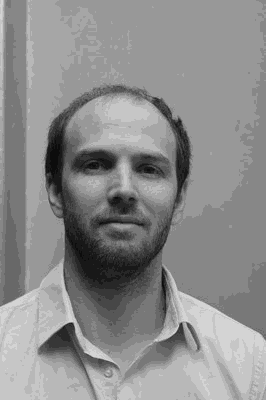 Dr. Johan Horst, LL.M. (Georgetown)
Dr. Johan Horst, LL.M. (Georgetown)
Dr. Johan Horst ist wissenschaftlicher Mitarbeiter am Max-Planck-Institut für Rechtsgeschichte und Rechtstheorie in Frankfurt am Main. Seine Forschungsschwerpunkte liegen in den Bereichen Völkerrecht und Rechtstheorie.
Jan-Werner Müller ist Roger Williams Straus Professor of Social Sciences und Professor of Politics an der Princeton University. Zu seinen Publikationen zählen Freiheit, Gleichheit, Ungewissheit (Suhrkamp, 2021), Furcht und Freiheit (2019) sowie Verfassungspatriotismus (2010). Er ist Teil des Leitungsteams des strategischen Partnerschaftsprojekts “CONSTRESS - Constitutionalism under Stress: Comparative Perspectives”.
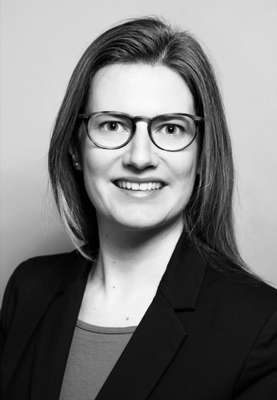 Dr. Ines Reiling
Dr. Ines Reiling
Dr. Ines Reiling arbeitet als Richterin am Verwaltungsgericht Gelsenkirchen. Zuvor war sie Mitarbeiterin am LSI und wurde 2023 mit der Arbeit Die Archäologie des ‚besonderen Gewaltverhältnisses‘. Über die Verschiebungen und die Regel eines Diskurses an der Humboldt-Universität zu Berlin promoviert.
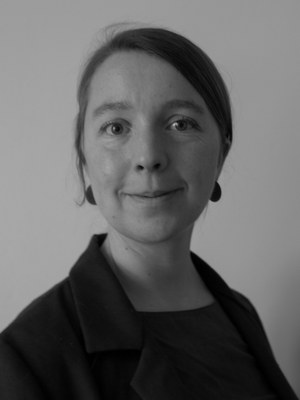 Dr. Anna-Julia Saiger, LL.M. (King's Collge, London)
Dr. Anna-Julia Saiger, LL.M. (King's Collge, London)
Dr. Anna-Julia Saiger ist wissenschaftliche Mitarbeiterin am Institut für Medien- und Informationsrecht an der Albert-Ludwigs-Universität Freiburg (Prof. Schneider). Zuvor studierte sie Rechtswissenschaften an den Universitäten Freiburg und Berlin (HU). 2022 wurde sie an der Humboldt-Universität zu Berlin mit der Arbeit Nationale Gerichte im Klimaschutzvölkerrecht. Eine rechtsvergleichende Untersuchung zum Pariser Übereinkommen promoviert.
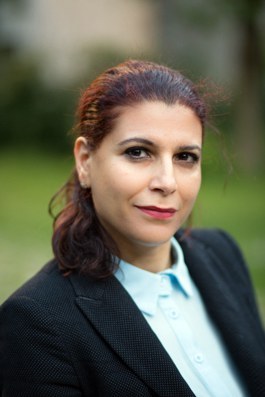
Dr. Nahed Samour wirkt als assozierte Wissenschaftlerin im The Race-Religion Constellation Project der Radbout University Nijmegen.
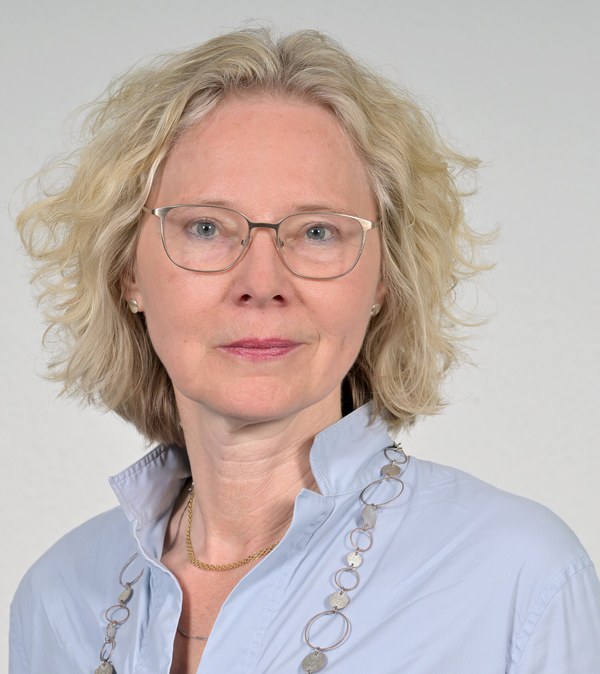
Tine Stein ist Inhaberin des Lehrstuhls für Politische Theorie und Ideengeschichte an der Georg-August-Universität Göttingen. Sie forscht zu den normativen Grundlagen des demokratischen Verfassungsstaates, sowie zum Verhältnis von Politik, Recht und Religion.
Dr. Larissa Vetters ist wissenschaftliche Mitarbeiterin am Max-Planck-Institut für Ethnologische Forschung in Halle. Ihre Forschungsschwerpunkte liegen im Bereich der politischen und rechtlichen Anthropologie, (vergleichendes) Verwaltungsrecht und der Transformation postsowjetischer Staaten.
Dr. Yoan Vilain ist Leiter der Abteilung Internationales der Humboldt-Universität zu Berlin. Zugleich fungiert er als Präsidiumsbeauftragter für Internationales und Europa.
Ehemalige Gastwissenschaftler:innen
Clara Maier is a political theorist and historian of political thought at Columbia University, New York. She received her PhD from the University of Cambridge for her work on ’The German Question’, an examination of conceptions of Nazism and German peculiarity in the period 1933-1968. In a forthcoming book on this subject she examines the work of key twentieth century thinkers such as Ernst Troeltsch, Hugo Preuss, Helmuth Plessner, Hannah Arendt, Eric Voegelin and Franz Neumann, among others, to contextualise their theoretical approaches to Nazism within contemporary understandings of German history and raise fresh questions about the relationship between historical narrative and democratic legitimacy.
She has since worked on the problem of judicialisation and democracy in Europe with a specific focus on Germany and Spain and has published widely on constitutionalism. Her writing on militant democracy, the history of judicial power in modern Germany, Carl Schmitt, Hans Kelsen and the concept of the Rechtsstaat have appeared in The Historical Journal, Modern Intellectual History, History of Political Thought, Jurisprudence as well as Der Staat, Archiv für Rechts- und Sozialphilosophie and the Frankfurter Allgemeine Zeitung.
At Columbia she teaches on the history of the Frankfurt School, German legal thought as well as the political theory of Hannah Arendt.
Recent work: https://www.cambridge.org/core/journals/modern-intellectual-history/latest-issue
Ece Göztepe is Full Professor for Turkish and Comparative Constitutional Law at the Bilkent University (Ankara/Turkey). Her main research interest and expertise are Turkish and German public law, with emphasis on constitutional complaint remedy, state of emergency regimes, as well as the legal history of the Weimar Republic.
Her current research project at the LSI deals with the function of the By-Laws of the Turkish Grand National Assembly (TBMM) and the German Bundestag in terms of the impact on and of the opposition parties.
Homepage: http://www.hukuk.bilkent.edu.tr/en/index.php?page=kisi&id=1
Leonie Thies ist Doktorandin am Centre for Criminology, University of Oxford. Sie hat Sozialwissenschaften an der Humboldt Universität studiert und war für Auslandssemester an der Universiti Sains Malaysia und der Università di Bologna. Sie arbeitete am Lehrstuhl für Stadt- und Regionalsoziologie an der HU Berlin, in der Forschungsgruppe "Rechtssoziologie" am Hamburger Institut für Sozialforschung und dem Projekt "Zugang zum Recht in Berlin" am Wissenschaftszentrum Berlin für Sozialforschung. Zurzeit forscht sie zu Praktiken des Strafens im Umgang mit kriminalisierten Jugendlichen. Ihre Promotion ist durch ein Stipendium finanziert. Sie leitet die Gruppe “Abolitionist Imaginaries & Praxis” an der University of Oxford und arbeitet dort auch für den Blog des Centre for Socio-Legal Studies im Bereich "Talking about Methods". Sie lehrte am Worcester College, University of Oxford und gibt im WiSe 2024/2025 ein Seminar zu Kriminalisierung von Jugendlichen am Institut für Sozialwissenschaften, HU Berlin.
Gianna Eckert ist Doktorandin an der University of Bristol, wo sie auf dem Gebiet des Ausländerrechts promoviert. Ihre Forschung behandelt zentrale Fragen des Ausweisungsrechts in Deutschland und dem Vereinigten Königreich im Lichte supranationaler Menschenrechtsprechung und diskutiert diese aus rechtsvergleichender Perspektive. Insbesondere interessiert sie sich für den Einfluss von nationalen Rechtskulturen auf die Entwicklung des Migrationsrechts.

Jonas Bornemann ist Assistant Professor für Europarecht an der Rijksuniversiteit Groningen. Seine Forschungsschwerpunkte sind das Europäische Verfassungs- und Migrationsrecht. Sein Forschungsaufenthalt am LSI wird durch das re:constitution fellowships ermöglicht. Im Rahmen dieses Fellowships forscht er zur kollektiven Securitisation im EU-Migrationsrechts und dessen Folgen für die Rechte von Migrant_innen.
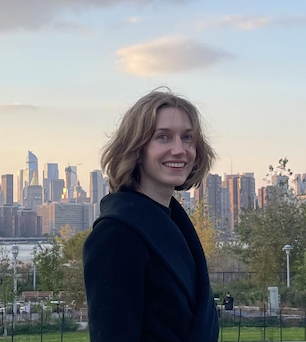
Hedwig Lieback ist Doktorandin am Department of Political Science an der Columbia University. Sie hat American Studies und Politikwissenschaften in Leipzig studiert und war für Auslandsjahre an der University of Texas at Austin und im Master an der Princeton University. Sie ist Research Assistentin für Professor Michael Doyle und hat diverse Kurse in politischer Theorie unterrichtet. Ihre Forschung liegt an der Schnittstelle von politischer Theorie, Rechtstheorie und Geistesgeschichte. In ihrer Dissertation beschäftigt sie sich mit vier Rechtsreformbewegungen in den USA und Deutschland im 20. Jahrhundert und ihrer Analyse der rechtlichen Verfestigungs- und Veränderungsmöglichkeiten sozialer Ungleichheit.
Berkant Caglar is a Ph.D. candidate in the Department of Anthropology at the University of Minnesota, Twin Cities. His dissertation is tentatively titled “Contested Legalities and Harmful Judiciary: Queer Justice and Legal Activism in Turkish Courtrooms”. Intrigued by the unique challenges faced by queer individuals in their interactions with the state’s judiciary, his research critically examines the legal activism of queer pro-bono lawyers and sheds light on secular legal infrastructures. It attends to a wide variety of litigation processes for cases involving queer claimants and defendants in the domains such as legal standing, right to protest, public decency, and hate crime. In addition to this dissertation research, his ongoing minor project focuses on denialism as a governing category in post-genocidal Turkey. In his DAAD-sponsored residency, he is affiliated with the Integrative Research Institute Law and Society and the Center for Comparative Research on Democracy.
Janna Wessels
Janna Wessels is Associate Professor at the Amsterdam Centre for Migration and Refugee Law (ACMRL), Vrije Universiteit Amsterdam. Prior to joining the ACMRL, Janna Wessels held positions at Justus Liebig University Giessen and the University of Technology Sydney (UTS). She received her PhD in refugee law from the Faculty of Law, University of Technology Sydney and the Faculty of Law, Vrije Universiteit Amsterdam (joint degree). Janna is a member of the Dutch Meijers Committee – Standing Committee of Experts in International Immigration, Refugee and Criminal Law, an Affiliate of the Refugee Law Initiative (London), and a member of the German Network Migration Law.
Janna Wessels’ research investigates the link between human rights and migration law and policy. She is the author of the monograph “The Concealment Controversy. Sexual Orientation, Discretion Reasoning and the Scope of Refugee Protection” (CUP 2021, paperback 2023) and co-author of “Human Rights Challenges to European Migration Policy. The REMAP Study” (Hart/Nomos 2022, open access). Her current research focuses on strategic litigation by states in migration-related cases before the European Court of Human Rights (Dutch NWO Veni project and Principal Investigator of the DFG funded MeDiMi project “Who is Empowered by Strasbourg? Migrants and States before the ECtHR”).
 Deniz Gedik
Deniz Gedik
Deniz Gedik received her BA and LLM from Galatasaray University, Istanbul, and her MA from Panteion University, Athens. She started her MPhil/PhD studies at London School of Economics and Political Science, London, before she was admitted as a visiting fellow at the LSI Berlin. Both as a lawyer registered to the Istanbul Bar Association since 2012, and a scholar, her work stands at the intersection point of social movements and law. Her PhD is on the right to resist in comparative constitutional law and her research at Humboldt University focuses on the right to resist in post-Soviet constitutionalism.
 Esra Demir-Gürsel
Esra Demir-Gürsel
Esra Demir-Gürsel (PhD) is an Alexander von Humboldt fellow at Humboldt Universität zu Berlin, Faculty of Law. After receiving her LL.M in Public Law from Istanbul University and MA in Human Rights from the University of Essex, she obtained her PhD in Public Law from Marmara University. Previously, she worked at the departments of Human Rights Law and Public Law at Marmara University in Istanbul. Between 2017 and 2020, she held visiting positions at Freie Universität Berlin and Hertie School of Governance. Her main research interests involve human rights law, the history of international law, gender and liberal legalism. Her on-going research project investigates into the limits of the European Court of Human Rights in responding to the entrenchment of authoritarianism in Turkey in comparison with the cases of other member states of the Council of Europe showing similar authoritarian tendencies. Her research traces the current limits of the Court back to the histories of the evolution of the Council of Europe and the Court.

Elisavet Lampropoulou
M2R Paris 1-Panthéon-Sorbonne
Email: elisavet.lampropoulou@gmail.com
Elisavet Lampropoulou is currently doing research on the question of the Greek financial crisis as a type of emergency situation, on how it was treated by the case-law of the Greek Council of State while performing judicial review of constitutionality of the legislation adopted as a response to the crisis and on the de facto constitutional changes that have occured due to these emergency circumstances. She is interested in the question of emergency leading to a re-invention of the constitutional rule instead of a delegation of the rule, the relation between political power and judicial power and the role of the Council of State as legislator and quasi-constitutional court.
Dr. Stefan Salomon
Stefan Salomon is Assistant Professor of European Law at the European Studies Department at the University of Amsterdam. His research focuses on migration and refugee law. He researches how legal governance of migration changes citizenship and produces racial inequalities. His research also covers questions of space and territory in EU law and international law. Stefan worked and conducted research in different regions and countries in Sub-Saharan Africa. Before joining the University of Amsterdam, Stefan was a lecturer at the law faculty at the University of Graz, where he taught the Refugee Law Clinic, international public law and migration and asylum law.
Tenured Assistant Professor in European Law at the European Studies Department of the University of Amsterdam and re:constitution Fellow.
University at Buffalo
Francesco Bosso, Refugee Studies Centre, University of Oxford
During his association with the Integrative Research Institute Law & Society, Francesco will be completing his PhD thesis on "the borders of the Rechtsstaat", which ethnographically investigates the doctrinal meaning and the social significance of the Rechtsstaat ideal in relation to the process of migrant exclusion.
https://www.qeh.ox.ac.uk/people/francesco-bosso
Mathis Stock
Université de Lausanne, Institut de géographie et durabilité
Mathis Stock arbeitet im Rahmen seiner Assoziierung an der Frage der Geographizität des Rechts, d.h. sowohl der räumlichen Verweise von Rechtsnormen als auch der Produktion spezifischer Raumqualitäten durch rechtliche Regulierung. Insbesondere die Folgen geographischer Mobilität auf die rechtliche Normierung des Wohnens und des öffentlichen Raums stehen im Mittelpunkt seiner Arbeit.
Prof. Dr. Olaf Zenker
Institut für Sozial- und Kulturanthropologie, Freie Universität Berlin
Während seiner Assoziierung am Law & Society Institute arbeitet Herr Prof. Dr. Olaf Zenker an dem Buchvorhaben "Land restitution and the moral modernity of the new South African state".
Judith Eggers
Max-Planck-Institute für ethnologische Forschung, Halle (Saale)
Judith Eggers ist im Rahmen ihrer Assoziierung in dem vom Max-Planck-Institut und Law & Society Institute gemeinsam getragenen Forschungsprojekt "Was macht Migration mit deutschem Verwaltungsrecht" tätig.
Teresa Büchsel
Centre for Socio-Legal Studies, University of Oxford
Teresa Büchsel arbeitet im Rahmen der Assoziierung an ihrem Promotionsvorhaben „Protection Status Attribution in German Administrative Courts - A Socio-Legal Inquiry“.
Benedikt Vischer, MA, MLaw, LL.M. (Yale)
Max-Planck-Institut für ausländisches öffentliches Recht und Völkerrecht
Benedict Vischer arbeitet im Rahmen der Assoziierung an seinem Dissertationsprojekt "Die Fremdheit des Rechts. Sprengkraft und Exklusionsgewalt der Rechtssemantik unter Bedingungen der Globalisierung". Weiterführende Informationen




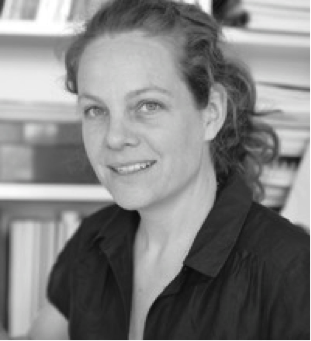


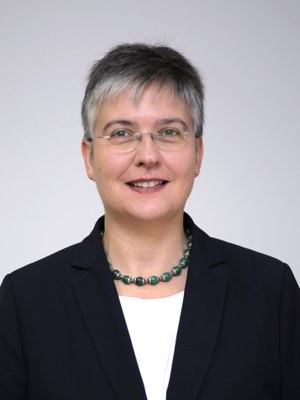
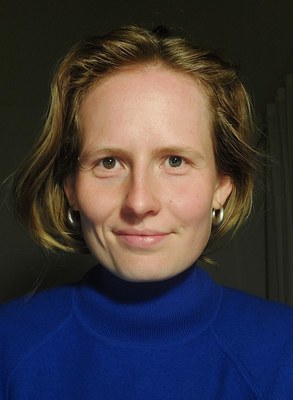
![Gianna Eckert 3[76] Kopie.jpeg](https://www.rewi.hu-berlin.de/de/lf/oe/lsi/personen/gastwissenschaftler-innen-1/gianna-eckert-3-76-kopie.jpeg/@@images/image-400-9a439097ecbcb4276630327c6fbcab96.jpeg)
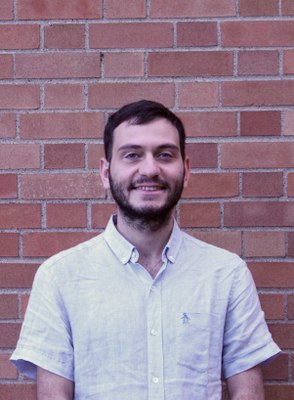 Berkant
Berkant 